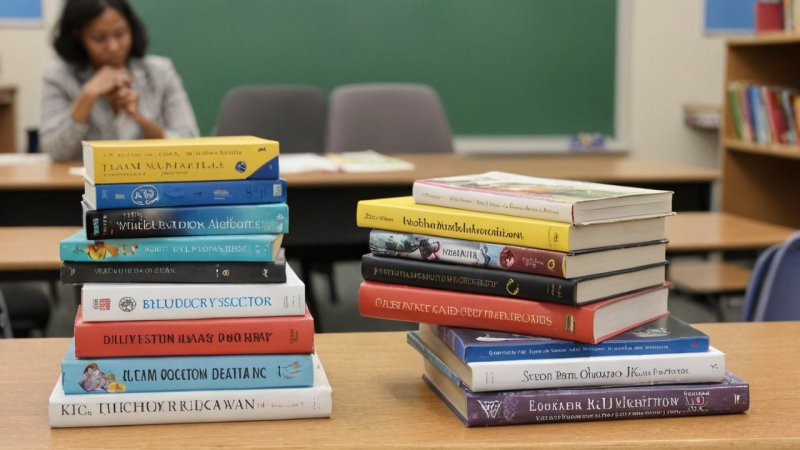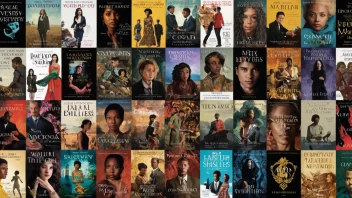In recent years, education reform has emerged as a critical area of discussion among policymakers, educators, and scholars alike. Non-fiction literature plays an essential role in shaping our understanding of the challenges and opportunities within the education system. This article aims to delve into the significance of non-fiction works that address education reform, examining key themes, influential texts, and the impact these narratives have on public perception and policy-making.
The Role of Non-Fiction in Education Reform
Non-fiction literature serves as a powerful medium for conveying factual information, personal experiences, and analytical perspectives on various issues, including education. Unlike fiction, which can evoke emotional responses through storytelling, non-fiction provides concrete evidence and data that can influence public opinion and drive change in educational policies. This genre encompasses a wide array of formats, including essays, documentaries, research studies, and memoirs, all of which contribute to a richer understanding of educational issues.
Informing the Public
One of the primary functions of non-fiction in the context of education reform is to inform the public about the systemic issues facing educational institutions. Books such as "The Death and Life of the Great American School System" by Diane Ravitch and "Educated" by Tara Westover highlight the complexities of education, from policy implications to personal narratives that illustrate the impact of educational systems on individual lives.
- Diane Ravitch’s Influence: Ravitch’s work critiques the trend of standardized testing and privatization in schools, advocating for a return to a more holistic approach to education.
- Tara Westover’s Memoir: Westover’s personal journey from a home-schooled child in a survivalist family to a Ph.D. from Cambridge University emphasizes the transformative power of education.
Shaping Policy and Advocacy
Non-fiction literature not only informs readers but also serves as a catalyst for policy advocacy. Works such as "The Smartest Kids in the World" by Amanda Ripley analyze global education systems, offering insights into successful practices that can be adopted in the U.S. By presenting data-driven arguments, these texts empower educators, parents, and policymakers to push for reforms that prioritize effective teaching and learning.
Key Themes in Non-Fiction Education Literature
Non-fiction literature on education reform often revolves around several recurring themes, each reflecting the challenges and aspirations of contemporary educational practices.
Equity and Access
Equity in education is a pressing concern that non-fiction authors address with both urgency and compassion. Books like "Savage Inequalities" by Jonathan Kozol expose the stark disparities between schools in affluent areas versus those in impoverished neighborhoods. Kozol’s poignant observations force readers to confront uncomfortable truths about systemic inequities in educational access.
The Impact of Technology
As technology continues to evolve, its role in education becomes increasingly significant. Non-fiction texts such as "The Innovator’s Mindset" by George Couros explore how technology can enhance learning environments and foster creativity. Couros argues for a shift in educational practices that embrace innovation, thereby preparing students for a rapidly changing world.
Teacher Empowerment
Teachers are at the forefront of education reform, and many non-fiction works emphasize the necessity of empowering educators. Books like "Teach Like a Champion" by Doug Lemov provide practical strategies for effective teaching, while also advocating for the professional development and support of teachers. By elevating the teaching profession, these texts contribute to broader reform efforts aimed at improving student outcomes.
Influential Non-Fiction Works on Education Reform
The landscape of non-fiction literature on education reform is rich and diverse. Here are some influential works that have shaped the discourse:
- The Death and Life of the Great American School System by Diane Ravitch
- How Children Succeed by Paul Tough
- Teaching to Transgress by bell hooks
- Pedagogy of the Oppressed by Paulo Freire
- Rethinking School: How to Build a Better School System by David D. Tyler
Each of these works provides unique insights and perspectives, challenging readers to reconsider their views on education and the reforms needed to create a more equitable system.
The Impact of Non-Fiction on Public Perception
Non-fiction literature has a profound impact on how education reform is perceived by the public. By articulating the issues and advocating for change, these texts can shift narratives and inspire action.
Creating Awareness
Books that highlight educational disparities and systemic issues create awareness among the general public. This awareness can lead to grassroots movements and increased advocacy for policy changes. For example, the publication of "Savage Inequalities" sparked conversations about funding disparities in education, leading to community mobilization efforts aimed at addressing these inequities.
Influencing Policymakers
Policymakers often rely on research and literature to inform their decisions. Non-fiction works that present compelling arguments, backed by data, can influence legislative discussions and result in the implementation of beneficial reforms. By engaging with these texts, policymakers can better understand the complexities of educational challenges and work towards evidence-based solutions.
Conclusion
Non-fiction literature plays an invaluable role in the ongoing discourse surrounding education reform. Through its capacity to inform, inspire, and advocate for change, this genre has the potential to reshape our understanding of education and the systemic issues that persist within it. As readers engage with these texts, they not only gain insight into the challenges faced by educators and students but also become empowered to participate in the dialogue and drive meaningful change in their communities. In a world where education is both a privilege and a right, the importance of non-fiction literature in influencing reform cannot be overstated.






